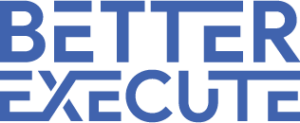Leaders aiming for high performance need more than skills; they need habits that empower them to thrive. This article provides insights into essential habits centered on clarity, energy management, urgency, optimizing productivity, and building influential relationships. These strategies help leaders stay competitive.
Key Points:
- Clarity around your purpose and values leads to smart decision-making, boosting both personal and professional achievements.
- Managing energy through regular exercise, mindfulness, and breaks is vital for maintaining efficiency and handling stress well.
- Creating urgency and firm deadlines works as a strong motivator, keeping goals within reach and driving consistent effort.
- Productivity optimization requires focusing on high-impact tasks and reducing interruptions, which refines how you manage your time.
- Building influential relationships hinges on emotional and social intelligence, encouraging open dialogue, trust, and shared success.
These habits are designed to give leaders the edge they need to excel.
Unleashing Clarity: The Foundation of High Performance
High performers grasp the power of clarity in both personal and professional spheres. This clarity acts as a compass, embedding purpose, values, and long-term goals into their daily actions. It orchestrates alignment with significant outcomes, paving the way for informed decision-making and structured goal evaluations. Brendon Burchard’s research highlights that executives with clarity often engage in more organized learning and self-improvement activities.
Consider prioritizing these key elements to foster clarity:
- Define clear purposes and values that resonate with your goals.
- Regularly evaluate your progress against long-term objectives.
- Schedule dedicated time for learning and development to stay aligned with your objectives.
By aligning actions with clear purposes, you enable a performance that not only meets but exceeds expectations.
Generating Energy: The Power Source of Leaders
Professional athletes understand the importance of keeping energy levels high, and leaders can benefit from this mindset. Regular exercise not only boosts physical health but also reduces stress, setting the stage for increased productivity and energy. Engaging in activities like meditation or taking short breaks can recharge your mental batteries. Neuroscience highlights that consistent exercise enhances mood and cognition, making it essential for effective stress management.
Consider These Quick Tips for Maintaining Energy:
- Commit to a weekly exercise routine.
- Incorporate mindfulness practices such as meditation.
- Schedule regular breaks to avoid burnout.
These strategies aren’t just about staying fit; they are key to sustaining high performance and effective stress management.
Raising Necessity: The Drive to Excel
In high-stakes environments, a sense of urgency often becomes the catalyst for decisive actions. Personal stakes, like having dependents reliant on your success, boost motivation and prioritization. This urgency propels leaders to excel, as the need to meet deadlines and expectations creates a powerful drive. Cultivating necessity isn’t just about pressure; it’s a tool for motivation.
Key Ways Urgency Can Enhance Your Leadership Effectiveness
- Set clear deadlines and stick to them.
- Prioritize tasks based on their impact and deadlines.
- Regularly assess personal and professional stakes to stay driven.
By incorporating these strategies, you’ll find that necessity fuels your commitment, transforming pressure into motivation.
Optimizing Productivity: Working Smarter
Effective time management is essential for busy leaders. Prioritizing tasks that drive genuine progress while eliminating digital distractions is key. Surprisingly, managing emails can consume up to 28% of the workweek, emphasizing the need to minimize these interruptions. To manage time effectively, focus on what truly matters and convert those intentions into actions:
- Identify Priority Tasks: Start by distinguishing between tasks that significantly impact your goals and those that don’t.
- Limit Email Checking: Designate specific times for email management to prevent constant disruptions.
- Use Tools for Efficiency: Consider digital tools that organize your tasks and block online distractions.
By streamlining your focus and reducing unnecessary digital distractions, you can enhance productivity with a disciplined approach to time management. Remember, working smarter is about prioritization and efficiency in your daily routine.
Nurturing Influence: Building Meaningful Connections
Forming influential relationships starts with being an effective coach. A good coach listens intently, providing constructive feedback that fosters growth. Emphasizing emotional intelligence in interactions also proves essential. By understanding your emotions and those of others, you can respond with empathy and insight. Developing these traits creates an environment where everyone feels valued and connected.
Social intelligence plays a critical role in establishing influence. It’s not just about understanding social cues but also how to use them to inspire and guide others. Influential leaders excel at communicating openly, creating trust and rapport across all levels. This skill becomes a driving force, enabling everyday interactions to contribute to a broader impact.
Building influence doesn’t stop at leadership. It extends beyond titles, encouraging each individual to motivate peers and drive collective success. Fostering an inclusive atmosphere means recognizing everyone’s potential impact, leading to shared goals and achievements. In doing so, you amplify team cohesion and align efforts with overarching objectives.
To harness the power of social intelligence and strengthen connections, consider the following strategies:
- Encourage open dialogue by setting clear intentions and creating a space where everyone feels safe to voice their thoughts.
- Practice active listening, responding thoughtfully rather than impulsively.
- Be adaptable, understanding that different situations may require distinct communication styles and approaches.
By embracing these strategies, you can enhance your influence and build meaningful connections that empower both you and your team.


